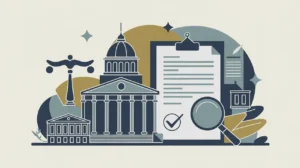Importance of Legal Services
Legal services are essential for upholding justice, protecting rights, and ensuring accountability. In international development, they help individuals and communities navigate laws, resolve disputes, and access remedies that safeguard dignity and equity. For nonprofits and social innovators, legal services matter because they expand access to justice for marginalized groups, strengthen rule of law, and create enabling environments for social and economic development. Their importance lies in making legal systems accessible, fair, and responsive to people’s needs.
Definition and Features
Legal services refer to the professional assistance provided to individuals, organizations, and governments in interpreting and applying the law. Their defining features include:
- Access to Justice: enabling people to understand and use legal systems.
- Representation: providing advocacy in courts, tribunals, or negotiations.
- Advisory Support: guiding compliance with laws and regulations.
- Rights Protection: ensuring that vulnerable groups can claim and defend their rights.
How this Works in Practice
In practice, legal services include legal aid for low-income individuals, representation in criminal or civil cases, and advisory work for nonprofits, businesses, or governments. For example, NGOs may provide legal clinics to assist refugees with asylum claims or help women secure land rights. Development programs often strengthen legal systems through capacity building, training, and institutional reforms. Barriers include high costs, limited availability of lawyers in rural areas, and systemic bias that makes justice inaccessible for many.
Implications for Social Innovation
Legal services have significant implications for social innovation because they ensure that new solutions are grounded in rights and accountability. Innovations such as mobile legal aid apps, community paralegal networks, and online dispute resolution expand access and efficiency. For proximate actors, legal services provide tools to navigate institutions, secure protections, and participate fully in civic life. Legal services are essential for advancing justice, equity, and inclusive development.







